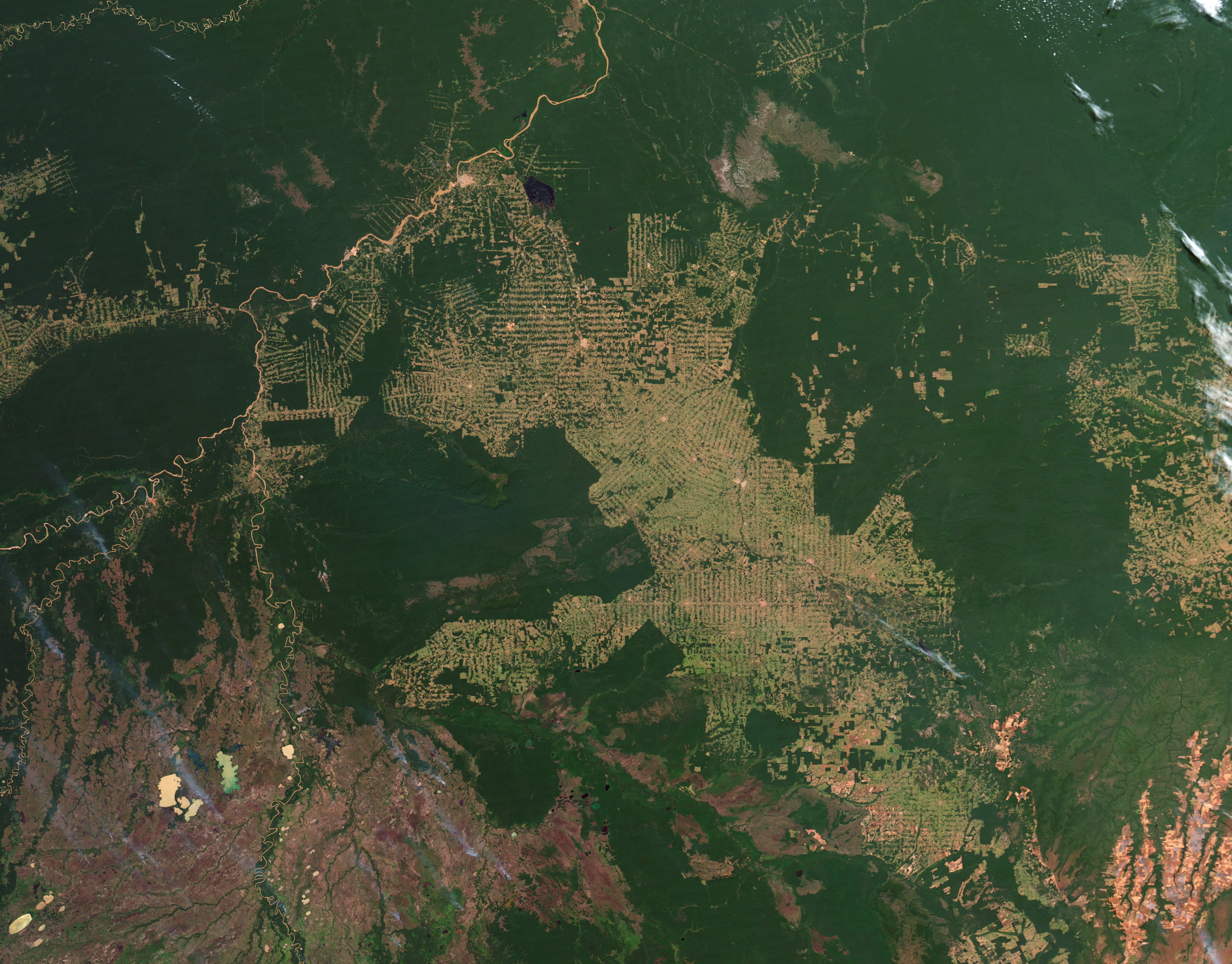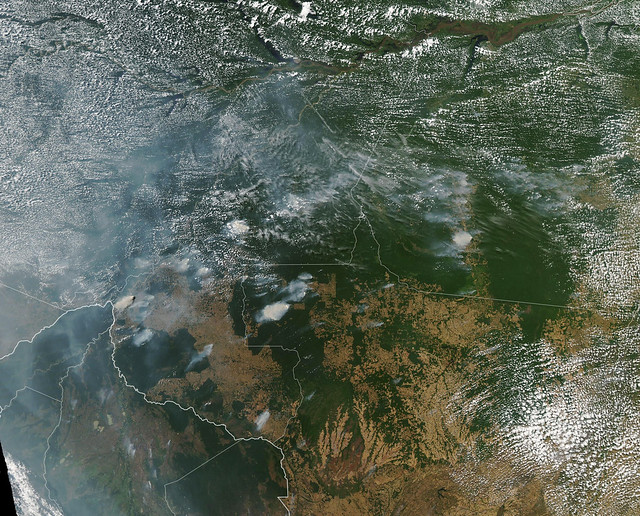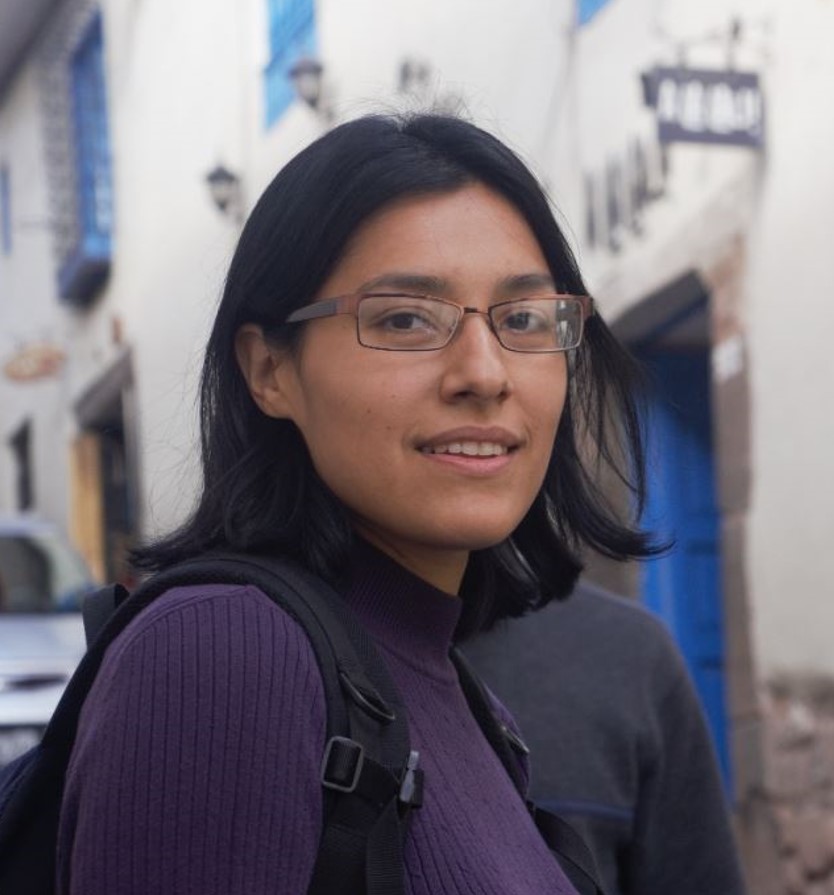Brazil's Space Agency Head Was Forced Out for Defending Climate Science
The departure occurred during a meeting with a former astronaut.

Ricardo Galvão, the former director of Brazil's space and climate-monitoring agency, left his position earlier this month after defending scientific findings that showed that the world's largest tropical rainforest is undergoing a sharp increase in deforestation.
In just one month, June 2019, the Amazon rainforest experienced deforestation over about 800 square miles (2,072 square km), a region larger than Maui. That total, published July 4, comes from the Deforestation Detection System in Real Time (DETER), a program run by Brazil's National Institute for Space Research (INPE).
DETER uses data from Earth-observing satellites to track tree loss in the Amazon. The program also found that Amazon rainforest deforestation increased by 15% from August 2018 to June 2019 compared with the same period in 2017 and 2018.
Related: It Sure Seems Like the Trump Administration Is Suppressing Reports of Climate Change at USGS
Reuters reported that, approximately two weeks after this alert was published, Brazilian President Jair Bolsonaro called INPE's deforestation data "a lie" during a meeting with foreign journalists and accused INPE of trying to undermine the Brazilian government. Galvão, then INPE's director, defended the science.
DETER representatives were invited to meet with Brazil's Ministry of Science, Technology, Innovation and Communications in Brasilia on July 31. "At this meeting the INPE team presented the methodology and results of DETER, and also, [additional] projects, and answered all the questions presented," INPE officials said in an Aug. 1 statement.
At a second meeting, the minister of Brazil's Institute of the Environment and Renewable Natural Resources, Olivaldi Azevedo, said there were "inconsistencies and errors" in DETER's data, according to INPE's statement.
Get the Space.com Newsletter
Breaking space news, the latest updates on rocket launches, skywatching events and more!
"INPE clarifies that [it] had no previous access to this analysis and [INPE's] representatives answered all the questions raised during the presentation," INPE officials wrote. "For a complete analysis, [we] requested access to the study… INPE reaffirms its confidence in the quality of data produced by DETER. Alerts are produced following widely publicized methodology and consistently applied since 2004. It is widely known that it contributed to the reduction of deforestation in the Amazon region, when used in conjunction with enforcement actions."

Bolsonaro took office in January after running a right-wing populist campaign, and the departure of Galvão, an MIT-trained scientist, is only the most recent escalation between the government and the country's scientific community. Since Bolsonaro entered office, Brazilian scientists have witnessed funding cuts, intimidation and rollbacks of environmental regulations, according to a recent article published by the journal Nature's news section. Many local scientists see the situation as an effort to halt or hide unfavorable research.
After Galvão publicly and sharply criticized Bolsonaro's language and the attack on INPE's deforestation monitoring system, he met with Marcos Pontes, Bolsonaro's science and technology minister and the first Brazilian astronaut to live on the International Space Station, which he did in 2006. That meeting ended, according to Galvão, with his involuntary departure from the agency, according to Reuters.
The meeting with Pontes was amicable, Galvão said in a recent interview with Scientific American. "I was afraid I would be pressed to resign. Pontes never did that. He said, 'The problem we have with the president has reached a point where you cannot work any further for the government,' Galvão told Scientific American. "Over almost an hour, we discussed in detail everything that should be done to provide enough financial resources for INPE to keep carrying out its activities and make the commitment not to curb any of our data."
- Bill Nye Brings Out the F-Bombs and a Blowtorch to Talk Climate Change
- Can Venus Teach Us to Take Climate Change Seriously?
- Climate Change Strengthens Earth's 'Heartbeat' — and That's Bad News
Follow Doris Elin Salazar on Twitter @salazar_elin. Follow us on Twitter @Spacedotcom and on Facebook.
Join our Space Forums to keep talking space on the latest missions, night sky and more! And if you have a news tip, correction or comment, let us know at: community@space.com.

Doris is a science journalist and Space.com contributor. She received a B.A. in Sociology and Communications at Fordham University in New York City. Her first work was published in collaboration with London Mining Network, where her love of science writing was born. Her passion for astronomy started as a kid when she helped her sister build a model solar system in the Bronx. She got her first shot at astronomy writing as a Space.com editorial intern and continues to write about all things cosmic for the website. Doris has also written about microscopic plant life for Scientific American’s website and about whale calls for their print magazine. She has also written about ancient humans for Inverse, with stories ranging from how to recreate Pompeii’s cuisine to how to map the Polynesian expansion through genomics. She currently shares her home with two rabbits. Follow her on twitter at @salazar_elin.








